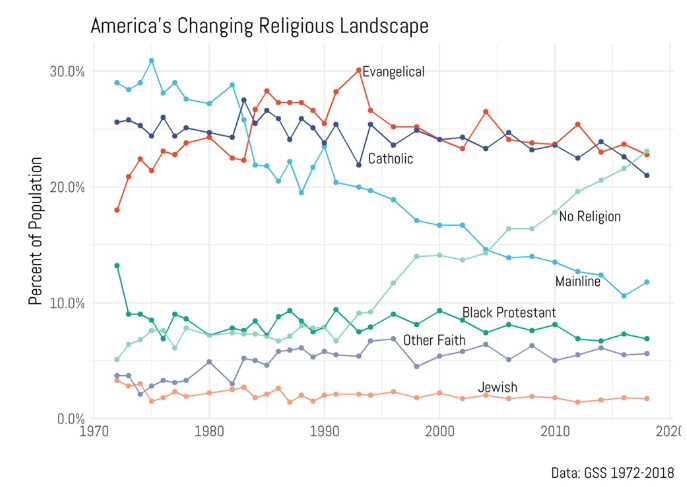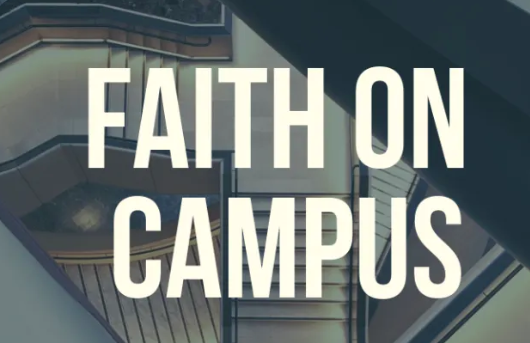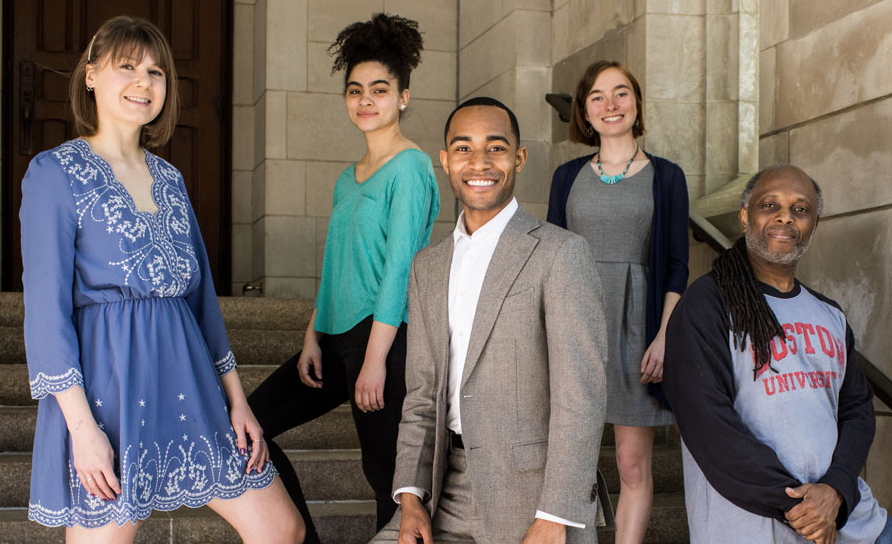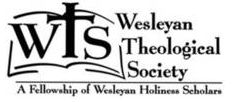Dear WesleyNexus Colleagues:
Earlier this month, the
Pew Research Center published an update on religious affiliation in the United
States. The release, entitled “In U.S.,
Decline of Christianity Continues at Rapid Pace” confirms what has been
reported for quite some time but also points out an interesting milestone. As of 2019, persons with “no identified
religious affiliation” are now 26 percent of the population. They are more numerous than self-identified
evangelicals, Catholics, Mainline Protestants and all any other
religious group – though taken as a whole, 65% of Americans identify themselves
as Christians. Leading these changes are millennials, that large population
born between 1981 and 1995. According to
Pew, “only half of millennials (49%) describe themselves as Christians;
four-in-ten are religious “nones,” and one-in-ten millennials identify with
“non-Christian faiths” which reflects a 13% change since 2009. OpenCulture.com had constructed a graph using
data from the General Social Survey which depicts these changes beginning in
1970 to present. When compared with common Christian sub-groups (Evangelical,
Mainstream, Catholic and Black Protestant) those identifying as having “no
religion” has overcome Evangelicals as the largest group in America.

This graphic needs broader explanation. While the graph applies apparently to the total population, the Pew survey centers on ‘millennials.’ Furthermore, the graphic presents a single clear pattern of folks who identify as “mainline” moving consistently toward “no religion.” But the survey says that these folks are moving away from organized religion. That’s a different matter. Moreover, how the surveyor specifically asks the question will certainly tailor the response, thus possibly conveying one message in 1990, while the same response to a slightly differently phrased question will convey something quite different in 2019. For example: I might indicate that I do not choose any sect. That does not mean I have no faith or no religion at all.
Still, since millennials and generation Z represent the future of religion in America, WesleyNexus is focusing this newsletter on the younger generations. While science and technology will contribute strongly to any social trends and concepts in today’s world, the theological and church polity issues must continue to contribute just as strongly This is why it is so important to understand clearly what statistical studies tell us about faith and religious practice. New forms of faith will undoubtedly develop over time with the common institutional forms that baby-boomers and older generations have equated as the hallmarks of religion continue to decline. Parachurch and informal, unaffiliated gatherings of persons addressing the inherent religious questions of humanity appear to be taking their place – though where it will all end is anyone’s guess. Regardless of these forms, technological and scientific issues will continue to frame the issues around faith and truth.
The Pew report can be found here.
The work of WesleyNexus is to bring you the best resources at the intersection of science and Christian faith, to promote the most reasoned and Christ-informed dialogue, that together we might make a difference in a world that is increasingly shaped by science and technology. We kindly ask your financial support to help us continue this important work. WesleyNexus is a 501(c)(3) charitable, educational organization, and we will acknowledge all gifts from individuals for tax reporting purposes. Thanks in advance for your support.
Blessings,
Rick, Bob, Jennifer, Maynard, and the rest of the WesleyNexus team
**************************************************************
Parachurch Ministry and the Gospel Ecosystem (Mikey Lynch)
Faith on Campus interview with Mikey Lynch

In this podcast, Ben Smart chats with Mikey Lynch about the relationship between parachurch ministry and its position within a larger gospel ecosystem. How do church and parachurch ministries relate to each other? What are some pitfalls? And what is a parachurch ministry anyway? Based on dictionary definitions, a parachurch entity is a Christian faith-based organization that works outside and across denominational lines to engage in social welfare, evangelism and specializes in programs that individual congregations may not be able to implement by themselves. Lynch is actually in the process of writing a book on this topic. In this episode Smart asks him what the purpose of his book is, and this was his answer: “To get us to think better and clearer on ministry and mission beyond the local church, so that we can get more gospel ministry happening across the board, in a healthy way that creates a win-win for everybody and more opportunities for people to come to know Jesus.”
Lynch has a long history of involvement with both the local church and also many parachurch ministries. After serving as a local church pastor for almost a decade, he has now spent many years serving as the staff team leader of the Christian group at the University of Tasmania. He’s also heavily involved in other parachurch ministries such as the Geneva Push church planting network, all while continuing to be an active member of his local congregation as well. While both Smart and Lynch are talking from a unique orientation within the Christian faith from half-a-world away in Tasmania, this discussion of what it means to be a parachurch provides useful insights on meeting faith challenges within a university environment. The Wesleyan tradition in particular has a long tradition of parachurch activities, in universities, hospitals, social services and many more. We at WesleyNexus view our mission to be part of this broader parachurch activity, since WesleyNexus is not officially recognized at this time by any denominational entity. The podcast can be found here.
**************************************************************
Graduating Students Share Their Journeys of Faith
Personal reflections offered during Marsh Chapel’s annual “This I Believe” Sunday

“There was a hush during Marsh Chapel’s weekly interdenominational service this past Sunday, as five members of BU’s Class of 2019 stood before the congregation and shared personal reflections about their spiritual journeys as undergraduate and graduate students at Boston University.
“This I Believe” Sunday is a tradition that began in 1982, as a way to give students active in the Marsh Chapel community a forum to share publicly how their spiritual lives had been shaped at BU. During the spring term, students from all of the University’s schools and colleges, whatever their faith tradition, are invited to submit an outline for a proposed talk. Several are then chosen by chapel staff, and they address the Marsh Chapel congregation on the Sunday before Commencement. The videos can be found here.
**************************************************************
Special Project: Understanding Generation Z from the Pacific Standard
This year, the Pacific Standard published a series of articles on Gen Z – that generation born after 1995 through 2015. “We hear a lot about how Gen Z represents a new kind of generation: digital natives drastically different even from millennials, who already had the Boomers scratching their heads. Are they really any different? How have they been shaped by—and responded to—new technology, recent history, and a shifting economy?
This project—a collaboration between Pacific Standard and Stanford University’s Center for Advanced Study in the Behavioral Sciences (CASBS)—draws on Stanford’s “Understanding iGen,” for which researchers employ deep interviews with college students in the United States and the United Kingdom, while also drawing on behavioral data, consumer trends, and a series of surveys. The project states, “Through publishing the results of these efforts, we hope to approximate a portrait of this generation, and an idea of where they’re leading us.”
The three articles below provide some insights into how this generation views religion and faith. We should listen for they shall inherit whatever legacy we are able to pass on and make it their own.
HOW GEN Z IS SOLVING AMERICA’S CRISIS OF ISOLATION by CASPER TER KUILE
WHY GENERATION Z SHOULD GIVE RELIGION A SECOND CHANCE by ERIN WIENS ST. JOHN
To see all the articles that make up the project, click here.
*************************************************************
ISSR program at American Academy of Religion in San Diego
The International Society for Science and Religion (ISSR) has announced its schedule for the Annual Meeting of the American Academy of Religion, which takes place in San Diego on November 23-26, 2019. This year, ISSR is presenting three sessions and co-sponsoring the annual science and religion reception on Saturday evening. In addition to the ISSR events, many other sessions at AAR address themes broadly related to science and religion. Some of these events are listed here, following the ISSR sponsored sessions. For more information about the AAR or the Annual Meeting, visit https://www.aarweb.org/. To see the full program book, visit https://papers.aarweb.org/program book. Questions about ISSR events may be sent to Ron Cole-Turner at coleturn@pts.edu.
1. Saturday – 1:00-3:00 PM. P23-207. Theme Deification and Creaturehood in an Age of Biotechnological Enhancement. Location: Marriott Marquis-Pacific 23 (First Level). This panel explores Christian and scientific responses to human enhancement by focusing on the conceptual relation between deification and creaturehood, building further on recently published work (see Theology and Science, vol 16, no 3 2018 and Studies in Christian Ethics, vol 32, no 2, 2019). Featuring Michael Burdett, Grant Macaskill, Brandon Gallaher, Simeon Zahl, Ted Peters, Ron Cole-Turner, and Victoria Lorrimar.
Saturday – 7:00-10:00 PM. Reception: Religion and Science Hospitality Event. Marriott Marquis-Marriott Grand 13 (Lobby Level).
2. Sunday – 9:00 AM-11:30 AM. P24-104. Theme: GEN XYZ: Futures of Science and Religion. Location: Marriott Marquis-Pacific 14 (First Level). This session will highlight the work of leading young scholars who will present an important, dynamic analysis of the futures of science and religion. Featuring Sarah Lane Ritchie, Josh Reeves, Emily Quereshi-Hurst, Bethany Sollereder, Kutter Callaway, Donovan Schaefer, Rebekah Wallace, Jeanine Thweatt, and Philip Clayton (respondent).
3. Sunday – 3:30 PM-5:00 PM. P24-303. Theme: The Future of “Science and Religion”: Beyond “Religion” and “Science”? Location: Marriott Marquis-Rancho Santa Fe 1 (North Tower – Lobby Level). Panelists will engage the audience in what is seen as the first in a series of conversations. Panelists will exchange and comment on short papers (4-5 pages) available beforehand. Featuring Zainal Abidin Bagir, Whitney Bauman, Alison Lutz, Eduardo Mendieta, Elaine Nogueira-Godsey, Josh Reeves, and Lisa L. Stenmark. Papers for the session are available at https://sites.google.com/site/beyondreligionandsc
Other Sessions of Interest:
· Saturday – 3:30-5:00 PM. Theme: What Is Nature? Toward a Science-Engaged Theology of Nature. Science, Technology, and Religion Unit. A23-336. Hilton Bayfront-Indigo 204A (Second Level).
· Sunday – 1:00-3:00 PM. A24-211. Theme: Catching up to CRISPR: Moral and Theological Responses to an Unprecedented Technology. Comparative Religious Ethics Unit. Hilton Bayfront-Sapphire 411B (Fourth Level).
· Sunday – 5:30 PM-7:00 PM. A24-428. Theme: The Nuts and Bolts of Transformation: A Zygon Roundtable on Science Fiction’s Imagined Technologies and the Civic Imagination. Convention Center-26B (Upper Level East).
*********************************************
Reminders
Second Annual “Cosmotheandric” Conference at the Omega Center, Dec 6-8, 2019

All of us in the WesleyNexus network should have a high interest in the upcoming conference sponsored by the Omega Center at Villanova University, December 6-8, on the theme “The Inside Story: Exploring Love at the Heart of the Universe.” The work of the Omega Center is guided by Sister Ilia Delio, a Franciscan Sister of Washington, DC and American theologian specializing in the area of science and religion, with interests in evolution, physics and neuroscience and the import of these for theology. This Conference is now sold out, so the only option for those not registered is to subscribe to the presentations on-line at https://omegacenter.info/conference2019/.
*********************************************
Evolution Weekend 2020 (14-16 February
2020) is six months away – but approaching quickly! A Message from Founder Dr.
Michael Zimmerman

This will be our 15th annual Evolution Weekend and, perhaps, our most important ever. Please join hundreds of your colleagues and work to reclaim the truth from those who believe opinion is more important. Please help us demonstrate that religion and science share many important facets and important conclusions.
You’ve participated in the past, and for that I am particularly grateful. I hope you will participate with your congregation again this coming February. Please sign up now!
Just hit reply and I’ll do the rest. I’ll add you to our growing list of colleagues, already over 70 strong representing 6 countries.
Thanks very much for considering participating again and for your continued support. Together we are making a difference.
—-
Michael Zimmerman, Founder and Executive Director, The Clergy Letter Project
www.theclergyletterproject.org
mz@theclergyletterproject.org
NOTE::
WesleyNexus plans to sponsor a Seventh Annual Evolution Program program in Maryland, and if funds permit, we will live stream the event once again for churches and colleagues across the country. Our program in 2020 most likely will take place on February 8th – so please stay tuned as our Board develops the content of the 2020 program. Details will appear in forthcoming newsletters and be posted on our website.
**************************************
John Wesley, Early Evangelicalism, and Science
Tuesday, 25 February 2020, at 7:00 pm.
Location: Parmer Hall, Messiah College, Mechanicsburg, PA.
A free lecture sponsored by The Central Pennsylvania Forum for Religion and Science, the Messiah College Honors Program, College Ministries, and the Sider Institute for Anabaptist, Pietist, and Wesleyan Studies.
The rise of evangelicalism coincided historically with the reception of modern science in mainstream culture. The new science was generally embraced by evangelicals as a source of “wonder, love, and praise.” Indeed, one of the ways in which scientific literacy spread was through the many popular works disseminated by John Wesley on science, medicine, electricity. This lecture explores Wesley’s many-sided, thoughtful engagement with science and his exemplary concern to “look upon nothing separate from God.”
Flyer link will be here
*******************************************
Wesleyan Theological Society – 2020 Annual Meeting

The 2020 annual meeting will be held in March at the Nazarene Theological Seminary in Kansas City, MO. The Call for Papers has been circulated, so we encourage all of our colleagues in the WesleyNexus nertwork to submit an abstract right now for a presentation in the Science and Religion Track. And encourage your graduate students to do the same. For further information or to submit paper proposals, contact WTS President Christina Smerick, christina.smerick@greenville.edu. The entire announcement and suggested topics for the 2020 Annual Meeting can be found here.
**************************************
The Center for Open and Relational Theology
What Is Open and Relational Theology?

“Open and Relational Theology” is an umbrella label under which a variety of theologies and believers reside. This variety shares at least two ideas in common:
God experiences time moment by moment (open)
God, us, and creation relate, so that everyone gives and receives (relational)
Most open and relational thinkers also affirm additional ideas, such as the idea love is our ultimate ethic, creatures are free at least to some extent, all creation matters, life has purpose, genuine transformation is possible, science points to important truths theology needs to incorporate, and more.
For more information click here.
**************************************
IRAS CONFERENCE ANNOUNCEMENT & CALL FOR PAPERS

The theme for the 2020 IRAS Star Island Conferebnce is “NATURALISM— AS RELIGION, WITHIN RELIGIONS, OR WITHOUT RELIGION?”
IRAS, the Institute on Religion in an Age of Science, will have its 66th conference, June 27 – July 4, 2020, at Star Island, NH. What are the consequences of science-inspired naturalism for religion? In this conference, we will explore and evaluate religious and non-religious options available to those who take science seriously. Briefly, these could be characterized as replacement, reform, and rejection. Speakers will be Owen Flanagan (philosopher), Marcelo Gleiser (cosmologist); Ursula Goodenough (biologist); Sarah Lane Ritchie (theologian); Carol Wayne White (philosopher of religion); Janet Newton (chapel speaker), Willem B. Drees (past-editor of Zygon: Journal of Religion and Science). Program co-chairs for the 2020 Conference are Barbara Whittaker-Johns and Willem B. Drees. The conference will be on Star Island, a small island in the Atlantic, off the coast of Portsmouth, NH – a setting of great natural beauty. We invite proposals for short papers on the theme of the conference and on other aspects of the interactions of science and religion. Topics can be approached from various perspectives, such as science, philosophy, religious studies or theology, history, psychology or sociology. They may consider traditions such as Christianity, Islam or Buddhism; contemporary developments such as religious naturalism, spirituality, or the rise of nones; naturalism in relation to philosophical topics such as moral motivation and values, consciousness, mathematics, or scientific methodology; the history of any such developments; their usefulness in addressing individual needs or global and planetary concerns; and so on. We look forward as well to proposals for panels with up to four participants, addressing a particular issue from multiple angles. Proposals for short papers or panels are invited; deadline November 30, 2019; earlier submissions are evaluated on a rolling basis. See for more information and the submission form https://www.iras.org/2020-conference.html. For more information: Willem B. Drees, w.b.drees@tilburguniversity.edu
**************************************
Non-scientific Creation Stories by Rev. Henry Schwarzmann
Henry Schwarzmann is a retired pastor from the Baltimore-Washington Conference of the United Methodist Church. He has created a chart that depicts the multiple versions of creation found in the Bible. Over the years, he has shared it with many parishioners (including youth) informing them that there is not just one creation story but many and the Bible contains diverse mixture of stories. Science adds to this mix and is a story that is still being written. The document can be found here.
